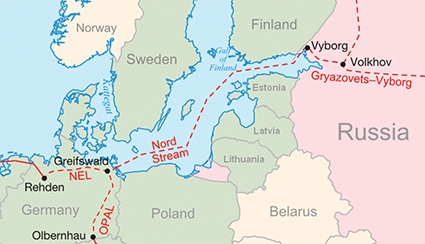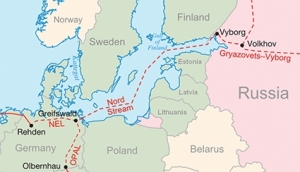Most EU Countries in Favor of Negotiations on Nord Stream-2
Most EU countries support the granting of a mandate to the European Commission to negotiate with Moscow on the creation of a special legal framework for the operation of the Nord Stream-2 pipeline, European Commissioner for Energy and Climate Miguel Arias Cañete said.
The European Commission is trying to extend a number of EU regulations to the future gas pipeline, into the frames of which it does not currently fall. In summer, the European Commission approved a draft mandate for conducting relevant negotiations with Russia. This mandate must be approved by the EU Council.
According to Cañete, when the EU Council began discussing the mandate, most of the EU members supported the initiative.
"Three different approaches to the mandate can be singled out at this stage. The first is that there is a significant number of EU countries that clearly support the mandate, the second is a group of countries that are fairly neutral to the idea; and only a small number of EU states at this stage are (against the mandate) for various reasons: either they consider it unnecessary, or because they believe (the proposal) is not ambitious enough, " Cañete noted.
At the same time, Cañete added that the European Commission believes Nord Stream 2 may negatively affect a number of routes of gas transit to the European Union, including Ukrainian ones.
Nord Stream 2 does not apply to all the rules of the internal market of the European Union, the third energy package, since the pipe will not pass through the land part of the EU. Therefore, the EC wants to agree with Russia on a number of key principles that it intends to extend to the operation of the gas pipeline. Among them, transparency of the gas pipeline operation, non-discriminatory establishment of tariffs for pumping gas, access of third parties to pumping "blue fuel", as well as separation of its sale and transportation.
The Nord Stream-2 project involves the construction of two strings of a gas pipeline with a total capacity of 55 billion cubic meters of gas per year from the Russian coast through the Baltic Sea to Germany. The new pipeline is planned to be built next to the "Nord Stream" pipeline.
Dimitri Dolaberidze











